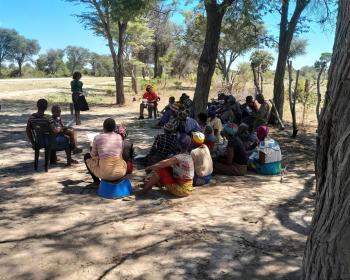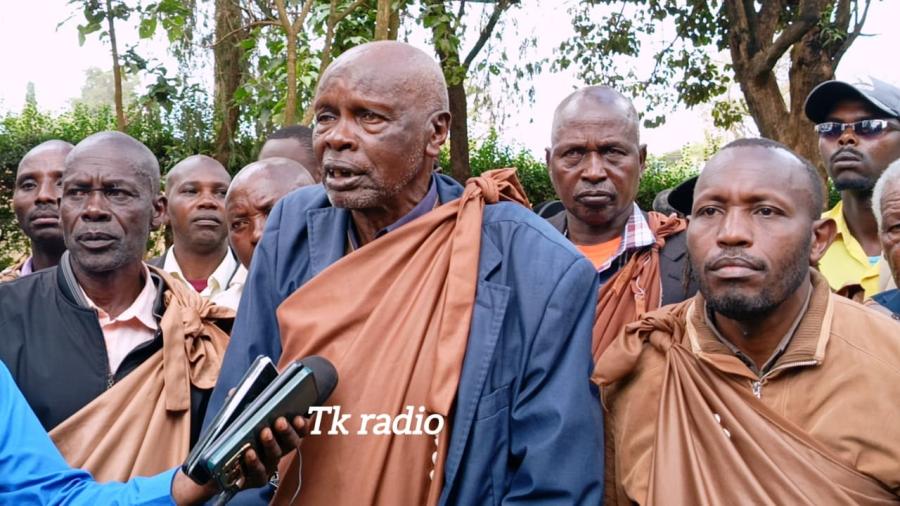The relatively peaceful Caprivi calm was shattered in August 1999 when dissident Caprivians attacked the Namibian town of Katima Mulimo, the capital of East Caprivi. While not a party to the dispute, the Caprivi Khwe have been drawn into it, attacked by the local rebels and their UNITA backers as government supporters, and attacked in turn by the Namibian Defense Forces (NDF) and the Special Security Force (SSF) as rebel collaborators. After the cross-border attack on Katima Mulilo, close to 1,000 Khwe fled into Botswana to escape harassment, torture, and extra-judicial killings by one side or the other. Nine hundred Khwe are currently housed 500 kilometers from their homes at Botswana’s largest refugee facility, Dukwe Refugee Camp.
In the series of harassments that forced the Khwe into exile, four incidents stand out:
1. The disappearance in August 2000—not reported in the media until February, 2001—of at least 15 Khwe. Their whereabouts are still unknown. The Legal Assistance Center has sought to no avail to obtain evidence of the missing people.
2. The refusal of Namibia’s government to recognize Kipi George, the popularly elected Khwe chief, as Traditional Authority for the area. George had been an articulate spokesperson for the Khwe and had served as Chair of the Working Group of Indigenous Minorities in Southern Africa (WIMSA). The dispute over his legitimacy became moot when George died of AIDS and tuberculosis in 2000. Questions remain about the legitimacy of the Khwe Traditional Authority, as yet unrecognized under Namibia’s Traditional Authorities Act.
3. In June 2001 at Kahenge Village, west of Rundu, SFF and NDF members rounded up more than 80 civilians, mostly !Xun and some Hai||om, on the suspicion of being illegal aliens. Some of these people were detained; others were required to move to the Namibian government and United Nations High Commission on Refugees (UNHCR) camp at Osire, and still others were told to return to Angola even though they were not Angolan citizens.
4. On July 10, 2001, a Khwe man died in the custody of the NDF. Hans Dikuwa was at first reported shot while trying to escape; the government subsequently claimed he drowned while attempting to cross the river into Angola. The circumstances of the case remain in doubt. (Namibia Human Rights Report 2000/2001)
A further cause for abandoning their homes is the continued presence of land mines in Caprivi and elsewhere along the Namibia-Angola border. Human rights workers have also criticized the Government of Namibia for non-observance of the Refugee Convention through a failure to establish immigration tribunals and committees to oversee refugee and asylum seeker matters.
Incidents have also been alleged of the indiscriminate detention and deportation without hearing of suspected illegal immigrants in northern Namibia. While these troubles continue, the Khwe in Botswana—who currently number 756 according to the UNHCR—want to be repatriated to Namibia. Some of them are refusing to return to their original homes for fear of persecution, creating a refugee problem for the two governments to sort out.


